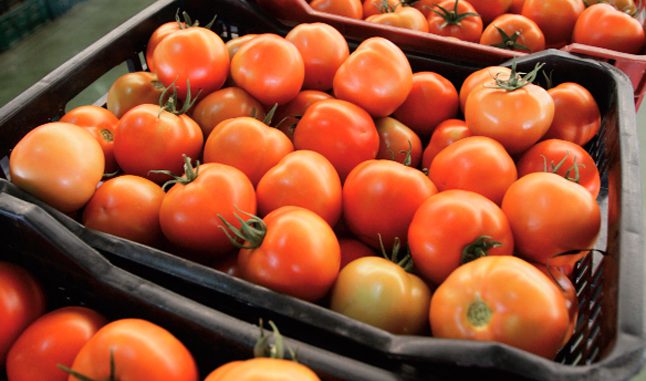
Spanish tomato growers are following with concern the breakthrough of Moroccan tomatoes on the European market. Unable to face this progression, they articulate their offensive against the national tomato production around the register of quality.
The Moroccan tomato is doing very well on the European market. The Spanish fruit and vegetable sector reluctantly admits it. According to Spanish producers in the region of Almeria, Europe’s vegetable garden, the Moroccan tomato has ousted its Iberian rival on the Community market. In fact, and according to statistics provided by the sector, sales of Moroccan tomatoes have increased significantly, to the point of surpassing those of Almeria, Europe’s largest tomato-producing region.
Moreover, the region is concerned about the increase in sales, but also in the area cultivated in Morocco. At a time when this Andalusian region is witnessing a decline in the area devoted to tomato cultivation, that of Morocco is clearly on the rise. This has enabled it to ensure an abundant supply and to consolidate its position on the market. However, Spanish producers attribute the success of this national product to the low prices charged by the Moroccan industry, ‘which is allowing it to gain ground’, according to the Spanish sector.
Indeed, tomatoes have always been at the center of the quarrels between the Moroccan and Spanish sectors. While in the past Spanish exporters considered the Moroccan threat to be serious, they now see it as a “reality that must be dealt with in order to survive”. Spanish producers consider that the large Moroccan supply is damaging their trade and substantially reducing their profits. It must be said that Moroccan exports have increased over the past decade. According to the calculations of Spanish agricultural organizations, tomato shipments rose from 293,320 tonnes to 449,711 tonnes during the decade, an increase of 53%.
In this regard, producers recently met with Spanish government officials to discuss the market situation, “impacted by the fall in prices and abundant supply,” according to the Iberian sector. This was denied by Spanish Agriculture Minister Luis Planas. He called on producers to be innovative and to seek out new markets to ensure the survival of the sector.

Be the first to comment